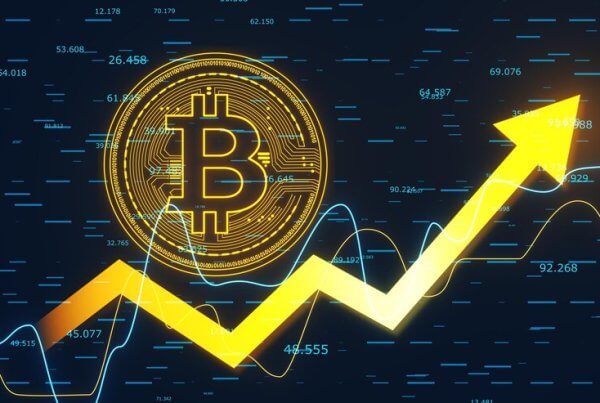Welcome to a financial revolution where the future of decentralized finance (DeFi) isn’t just a buzzword—it’s a seismic shift in how we manage money. Imagine a world where traditional banks, with their opaque systems and rigidities, make way for a transparent, accessible financial system built on blockchain technology. This isn’t just about trading cryptocurrencies; it’s about reimagining financial services to empower everyone, everywhere, with fairer, more inclusive opportunities. The journey into the future of DeFi promises not just evolution, but a revolution in financial freedom and autonomy.
Understanding the Future of Decentralized Finance (DeFi)
Decentralized Finance (DeFi) represents a transformative shift in the way financial systems operate, challenging the traditional norms upheld by centralized banking institutions. Originating from the ethos of blockchain technology, DeFi aims to democratize financial services, making them accessible to anyone with an internet connection. Besides offering traditional financial services like lending and borrowing, DeFi platforms utilize smart contracts to automate transactions, ensuring efficiency and transparency. Moreover, the ability to earn yield through staking and liquidity provision is attracting a diverse array of users keen on maximizing their financial returns. Finally, the rise of DeFi signifies a broader movement towards financial empowerment, where individuals can bypass intermediaries and take control of their assets securely and efficiently.https://w3ultra.com/dao-tokyo-2024/
Key Features and Benefits of DeFi in Today’s Financial Landscape
The key features of DeFi lie in its ability to provide financial services without the need for intermediaries, ensuring greater autonomy and control over one’s assets. Besides decentralization, DeFi platforms offer enhanced accessibility, allowing users worldwide to participate in financial activities traditionally limited to specific regions or demographics. Moreover, the composability of DeFi protocols enables developers to create innovative financial products by combining different decentralized applications (dApps). This flexibility fosters a vibrant ecosystem where new financial tools and services continually emerge, catering to diverse user needs and preferences. Finally, DeFi’s permissionless nature means that anyone with an internet connection and a compatible digital wallet can access its services, promoting financial inclusion on a global scale.
The Rise of DeFi: Disrupting Traditional Banking Norms
The rise of DeFi represents a significant disruption to traditional banking norms, challenging the centralized control exercised by financial institutions. By eliminating intermediaries, DeFi platforms reduce barriers to entry, allowing individuals to participate in financial activities with minimal friction. Furthermore, the transparency offered by blockchain technology ensures that transaction histories are publicly verifiable, enhancing trust among users. Besides, DeFi’s operational efficiency and lower transaction costs compared to traditional banking services make it an attractive alternative for both retail and institutional investors seeking greater returns on their investments. Moreover, the ability to earn passive income through yield farming and liquidity provision has attracted a new wave of users looking to maximize their financial potential in a decentralized ecosystem.
Challenges and Opportunities in the DeFi Space
Navigating the landscape of decentralized finance (DeFi) presents a myriad of challenges and opportunities reshaping the financial sector. Overcoming liquidity challenges remains a primary concern, with decentralized exchanges (DEXs) playing a pivotal role in facilitating trading activities without relying on centralized authorities. Besides enhancing liquidity pools, DEXs strive to mitigate issues like price volatility and impermanent loss, ensuring a more stable trading environment for users. Furthermore, security and transparency are paramount in DeFi platforms, addressing longstanding concerns about the vulnerability of decentralized applications (dApps) to hacks and exploits. Lastly, regulatory frameworks worldwide pose significant hurdles to DeFi’s mainstream adoption, requiring innovative solutions that balance compliance with the decentralized ethos of financial autonomy.https://medium.com/@jefferyokesamuel1/challenges-and-opportunities-in-the-defi-space-32ec57aec714
Overcoming Liquidity Challenges: The Role of DEXs
In the realm of decentralized finance (DeFi), liquidity remains a cornerstone for ensuring robust market activity and price stability. Decentralized exchanges (DEXs) have emerged as crucial platforms facilitating peer-to-peer trading without the need for intermediaries. By leveraging automated market makers (AMMs), DEXs enable users to trade digital assets directly from their wallets, enhancing accessibility and reducing transaction costs. Moreover, DEXs address liquidity fragmentation by pooling assets into shared liquidity pools, allowing for more efficient price discovery and trading volumes. Finally, initiatives like Stabble on Solana demonstrate advancements in liquidity provision, offering tools for internal and external arbitrage to optimize returns for liquidity providers.
Security and Transparency
Security remains a paramount concern in the decentralized finance (DeFi) space, given the prevalence of smart contracts and decentralized applications (dApps) vulnerable to exploits. To bolster security measures, DeFi platforms prioritize rigorous auditing of smart contracts and protocols, ensuring code integrity and resilience against malicious attacks. Furthermore, transparency plays a pivotal role in building trust among users and stakeholders. By leveraging blockchain technology, DeFi platforms offer transparent transaction records that are publicly verifiable, reducing the risk of fraud and enhancing accountability. Lastly, community-driven initiatives promote best practices in cybersecurity and risk management, fostering a secure environment conducive to sustainable growth in the DeFi ecosystem.
Regulatory Hurdles and the Path to Mainstream Adoption
As decentralized finance (DeFi) gains traction, regulatory challenges loom large on its path to mainstream adoption. Regulatory authorities worldwide grapple with defining frameworks that balance innovation with consumer protection and financial stability. Besides, the decentralized nature of DeFi poses unique challenges for compliance and oversight, requiring collaborative efforts between industry stakeholders and regulators to establish clear guidelines. Moreover, evolving regulatory landscapes impact market dynamics and investor sentiment, influencing the growth trajectory of DeFi projects. Finally, proactive engagement with regulators and advocacy for clear regulatory frameworks are crucial for DeFi platforms to navigate legal uncertainties and foster broader acceptance among traditional financial institutions and global markets.
The Impact of DeFi on Global Financial Inclusion
Future of decentralized finance (DeFi) is not just reshaping financial systems; it’s also opening doors to global financial inclusion. By leveraging blockchain technology, DeFi platforms offer unprecedented access to financial services for the unbanked and underbanked populations worldwide. Besides providing basic banking services like savings and lending, DeFi eliminates geographical barriers, allowing anyone with internet access to participate in the global economy. Moreover, the ability to transact in cryptocurrencies bypasses traditional banking infrastructures, which can be inaccessible or unreliable in many regions. Finally, DeFi promotes financial empowerment by offering opportunities for wealth creation and economic participation that were previously out of reach for millions.

Empowering the Unbanked: Access to Financial Services Worldwide
DeFi plays a crucial role in empowering the unbanked population by providing access to essential financial services without the need for traditional banks. In developing countries where banking infrastructure is limited or absent, DeFi platforms offer a lifeline, enabling individuals to store value, access credit, and engage in commerce securely and efficiently through their smartphones. Furthermore, by utilizing decentralized applications (dApps), individuals can participate in decentralized lending and borrowing protocols, which are often more accessible and transparent than traditional banking services. Moreover, DeFi’s permissionless nature ensures that individuals are not excluded based on their location or socioeconomic status, fostering greater financial inclusion on a global scale.
Social and Economic Implications of DeFi Adoption
The Future of decentralized finance (DeFi) has far-reaching social and economic implications, transcending mere financial transactions. Besides offering financial empowerment, DeFi promotes economic resilience by reducing dependency on centralized financial systems prone to inflation and government interference. Moreover, by enabling peer-to-peer transactions and fostering community-driven financial ecosystems, DeFi encourages social cohesion and collaboration among its users. Lastly, the transparency and auditability inherent in blockchain technology ensure that financial activities within DeFi platforms are accountable, mitigating fraud and corruption risks that plague traditional financial systems. Furthermore, the growth of DeFi communities contributes to knowledge sharing and capacity building, empowering individuals to take control of their financial futures.
Case Studies: Successful DeFi Projects and Their Community Impact
Several DeFi projects have demonstrated the transformative potential of decentralized finance in real-world applications. For instance, projects like Aave and Compound have pioneered decentralized lending and borrowing protocols, allowing users to earn interest on their assets or access credit without intermediaries. Furthermore, platforms like Uniswap have revolutionized decentralized exchanges (DEXs), enabling seamless token swaps and liquidity provision. Moreover, initiatives focusing on stablecoin adoption in developing regions have facilitated reliable digital payments and remittances, reducing reliance on volatile local currencies. Lastly, community-driven DeFi projects emphasize sustainability and inclusivity, fostering a collaborative environment where users contribute to platform governance and development.
Embracing the future of decentralized finance (DeFi)
In conclusion, the future of decentralized finance (DeFi) promises not only financial innovation but also a fundamental shift towards inclusive and transparent global financial systems. By empowering the unbanked, promoting economic resilience, and fostering community-driven initiatives, DeFi is redefining how individuals interact with money and financial services. Furthermore, as DeFi continues to evolve and integrate with traditional finance, its impact on economic empowerment and global financial inclusion will only grow stronger. Embracing this evolution entails embracing a future where financial systems prioritize accessibility, transparency, and user empowerment, paving the way for a more equitable and sustainable global economy.








